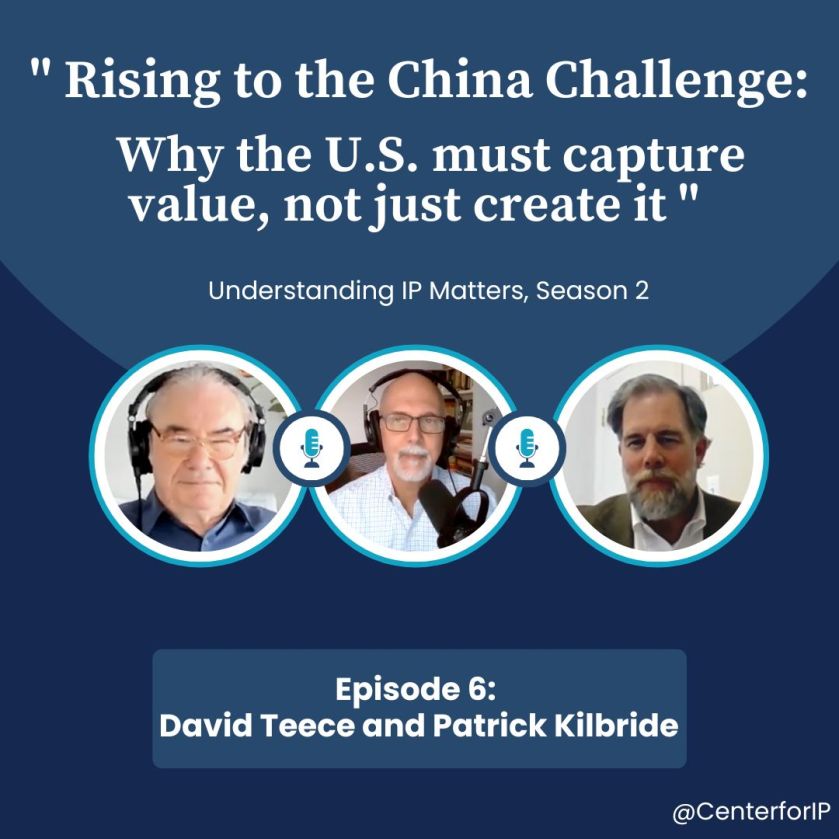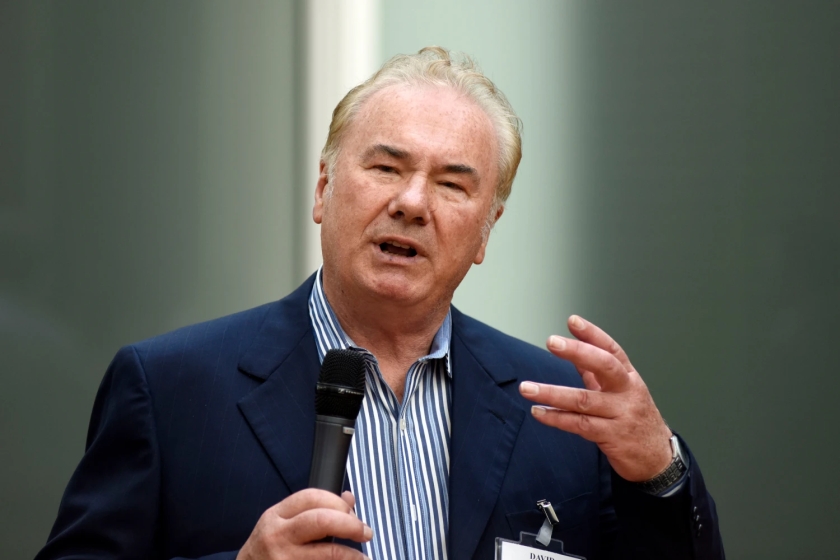Despite the U.S.’s history of generating innovation, it has a less than stellar record for capturing and otherwise monetizing it.
Digitalization and the ease of imitation, as well as changing cultural dynamics, have enabled rampant copying of inventions and content protected by patents and copyrights. Speed and access have also contributed. “The U.S. is fairly good at creating innovation,” said David Teece, recently named the most cited business scholar by PLOS Biology,* a peer-reviewed journal, on the latest episode of ‘Understanding IP Matters, “but not always effective at capturing it.”
“The U.S. relies heavily on innovation. We really have to pay attending to the value capture side or we have nothing left.”
The episode, ‘Rising to the China Challenge: Why the U.S. must capture value, not just create it,’ dropped today. It can be heard here.
Teece and Kilbride
‘Understanding IP Matters’ is pleased to present David Teece and Patrick Kilbride, the Senior Vice President of the Global Innovation Policy Center, a part of the U.S. Chamber of Commerce and a former Bush Administration trade advisor.

Dr. Teece is a unique figure — a leading economist who believes his colleagues are too focused on short term goals and fear of IP rights, like patents, copyrights and trade secrets.
“There’s nobody in Washington
standing up for innovation”
Thomas W. Tusher Professor in Global Business at UC Berkeley’s Haas School of Business, Dr. Teece is also Chairman and Principal Executive Officer of Berkeley Research Group, an international consulting firm. A successful entrepreneur, Dr. Teece has founded and taken public or sold several businesses. He owns farms and vineyards in his native New Zealand and is an avid sailor.
Excerpts
DT: “There’s nobody in Washington standing up for innovation,” says Teece on the Season 2, Episode 6 of ‘Understanding IP Matters’. “We have a Science Advisor to the President. We don’t have an Innovation Advisor. We need an Innovation Czar to articulate the importance of a coherent innovation policy.”
“There should be somebody in every government agency that’s championing innovation. It’s certainly a much used term, but in terms of policy priority, it doesn’t get it where it doesn’t get as much attention as as it needs.”
“We’ve done okay partly because universities and other institutions, and corporations have been champions of innovation. The venture capital community has helped bring it to market, but they don’t do much for the early stage activity, and I fear in many cases that we’re eating our seed corn.”
PK: One of the important things that we think about from an investment standpoint, and we always think intellectual property should be viewed from the beginning of the innovation equation.
If you have a solid foundation of IP rights, in a rule-of-law environment for business it is easier to determine where those rights are. They are predictable, transparent, and usually reliable and readily enforced. This permits businesses to make investments on a long time horizon.”
Tap here to listen to “Rising to the China Challenge: Why the U.S. must capture value, not just create it.”
Go here for Apple Podcasts access.
*Teece was ranked first among 36,000 scholars reviewed.
Image source: ccc-community.org; CIPU

